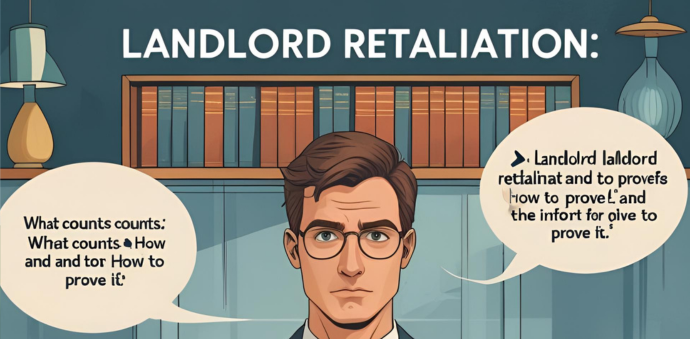
When you speak up about problems in your rental home or stand up for your rights, you deserve protection, not punishment. Unfortunately, some landlords retaliate against tenants by threatening eviction, increasing rent, cutting services, or refusing to renew leases. Understanding what landlord retaliation is, how to recognize it, and how to prove it can empower you to defend your rights effectively.
Landlord retaliation occurs when a landlord takes adverse actions against you because you exercised your legal rights as a tenant. Common retaliatory behaviors include:
You are protected if your complaints or actions were made in good faith regarding building or health code violations, fair housing rights, lease enforcement, or membership in tenant organizations.
Examples of protected tenant activities include reporting unsafe conditions to government agencies, requesting repairs, suing your landlord for habitability issues, or refusing to abide by unfair new regulations imposed by the landlord.
Proving retaliation means showing a connection between your protected activity and the adverse action taken by your landlord. Useful evidence includes:
It’s often easier to prove retaliation when the adverse action closely follows your complaint or exercise of rights, suggesting a cause-and-effect relationship.
Retaliation is illegal in most states, and you have options to fight back:
Consulting an experienced tenant rights attorney is essential to assess your case, preserve evidence, and pursue the best course of action.
Standing up for your housing rights should never lead to punishment or threats. If you’ve experienced eviction threats, rent hikes, lease nonrenewal, or service cutoffs after reporting problems or asserting your rights, you could be a victim of retaliation.
Contact us today for a free consultation. We’ll help you understand your rights, gather the evidence you need, and guide you through legal steps to stop retaliation and protect your home.
Don’t suffer in silence. Reach out now and take control of your living situation with expert support.
Read: What are my rights if my apartment has roaches or rats?